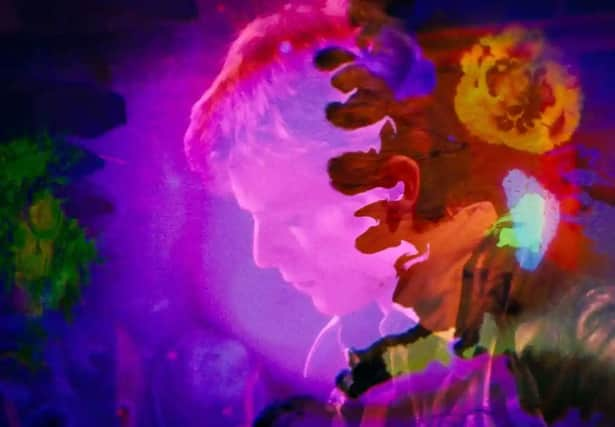Moonage Daydream: Brilliant biopic lays Bowie bare in all his genius


Ten years ago in Crossfire Hurricane director Brett Morgen created the definitive film biography of The Rolling Stones, superbly capturing their emergence, their development, their impact and their brilliance.
Has he done the same, a decade later, with Moonage Daydream, his biopic of Bowie, a film so cleverly edited that Bowie, almost unbelievably, narrates it himself? The answer is just slightly no, but otherwise wholeheartedly yes. With the Stones Morgen had a far simpler task, a far more straightforward trajectory to recreate. We knew what the Stones were at the start of his film and we knew what they were going to be at the end of it. They start and finish as their greatest rock ‘n’ roll band on earth.
Advertisement
Hide AdAdvertisement
Hide AdBut with Bowie, it’s a very very different undertaking. Bowie’s great fascination is his sheer resistance to definition – and this is maybe where Morgen struggles in the first half of the film. Later on in the piece we hear Bowie define himself as the hit and run artist, with tactics see, write and move on. As Bowie, so eloquently says, in his book, the journey is everything: if he ever felt he’d ever achieved anything, then he was heading in the wrong direction: “The search is everything,” as the great man said.
Even more memorably, Bowie sums up his art when he tells us that it was all about finding your depth and then going that little bit further; his mantra was that when your feet don’t quite touch the ground, then that is when something happens. It is brilliantly expressed – a rationale for all those chameleon years in which Bowie was the blank canvas on which he constantly created new characters, never lingering, always ringing the changes. Morgen’s mistake in the first half of the film is that he tries to convey that by bombarding his audience with a completely bewildering barrage of sights and sounds, a constantly changing panorama of images and noises, all changing so quickly that the result is a film which is actually very very hard to get into.
But slowly, very slowly, it finds its measure and then soars. By the end, you feel as if you have got as close as it is possible to get to a full picture of this complex, difficult, awkward man, his journey from those cringey early interviews in which he looks and sounds so shy and ill at ease to the comfort and the security which came in his later years through marriage and happinesss, the knowledge in the end that he sucked up pretty much everything that life could throw at him – and some more.
Quite rightly Morgen doesn’t get bogged down in the specifics of years or discographies; at times, slightly infuriatingly, he doesn’t even tell us who’s speaking (though you will recognise Michael Parkinson, Russell Harty, Valerie Singleton etc). Instead, he goes for the full-on immersive experience, plunging us into Bowie’s world. He overdoes it fairly disastrously for the first half an hour or so before eventually finding his feet. It builds powerfully until the reassurance comes: Bowie’s death was a tragedy which shocked us all, but comfortingly, Morgen leaves us with Bowie’s expression of his own sense of contentment and fulfilment. As Bowie said, it doesn’t matter how long we have; it’s what we do with it. Bowie clearly went to his grave with the knowledge he had lived his life to the full.